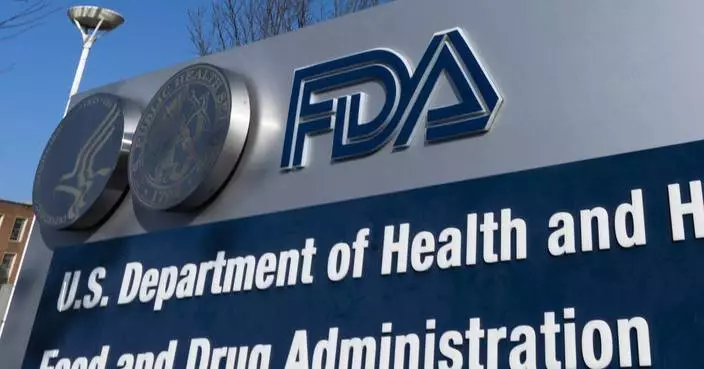DALLAS (AP) — The pilots union at American Airlines says there has been “a significant spike” in safety issues at the airline, including fewer routine aircraft inspections and shorter test flights on planes returning from major maintenance work.
The union also says it has seen incidents in which tools were left in wheel wells and items were left in the sterile area around planes parked at airport gates.
A spokesman said Monday that union officials have raised their concerns with senior managers at the airline and were encouraged by the company's response.
American, which is based in Fort Worth, Texas, did not immediately comment on the matter.
The safety committee of the Allied Pilots Association said in an email to members Saturday that the union “has been tracking a significant spike in safety- and maintenance-related problems in our operation.”
The union said American has increased the time between routine inspections on planes. It also said American has ended overnight maintenance checks unless a plane is written up for special attention or due for scheduled maintenance and now does “abbreviated” test flights on planes returning to service after major maintenance checks or long-term storage.
The union asked its members to report any safety or maintenance problems.
“We all understand that aviation accidents are the result of a chain of events — often a series of errors — and catching just one of those errors could prevent a tragedy,” the union said in the email.
Dennis Tajer, a pilot and spokesman for the union, said the union wants to be involved earlier in the process of assessing safety risks. He said the union spoke recently with senior management, “and management’s initial response to our request was encouraging. We fully intend to do everything we can to assure that American maintains strong margins of safety.”

FILE - The American Airlines logo is stands atop the American Airlines Center, Dec. 19, 2017, in Dallas. The pilots' union at American Airlines says there has been “a significant spike” in safety issues at the airline, including fewer routine aircraft inspections and shorter test flights on planes returning from major maintenance work. A spokesman said Monday, April 15, 2024, that union officials have raised their concerns with senior managers and were encouraged by the company's response. (AP Photo/Michael Ainsworth, File)
It’s wine time. Beer Thirty. Happy hour. Five o’clock somewhere.
Maybe it's also time to rethink drinking?
Moderate drinking was once thought to have benefits for the heart, but better research methods have thrown cold water on that.
“Drinking less is a great way to be healthier,” said Dr. Timothy Naimi, who directs the Canadian Institute for Substance Use Research at the University of Victoria in British Columbia.
Guidelines vary a lot from country to country but the overall trend is toward drinking less.
The United Kingdom, France, Denmark, Holland and Australia recently reviewed new evidence and lowered their alcohol consumption recommendations. Ireland will require cancer warning labels on alcohol starting in 2026.
“The scientific consensus has shifted due to the overwhelming evidence linking alcohol to over 200 health conditions, including cancers, cardiovascular diseases and injuries,” said Carina Ferreira-Borges, regional adviser for alcohol at the World Health Organization regional office for Europe.
From Dry January to Sober October to bartenders getting creative with non-alcoholic cocktails, there's a cultural vibe that supports cutting back.
"People my age are way more accepting of it," said Tessa Weber, 28, of Austin, Texas. She stopped drinking for Dry January this year because she'd noticed alcohol was increasing her anxiety. She liked the results — better sleep, more energy — and has stuck with it.
“It’s good to reevaluate your relationship with alcohol,” Weber said.
That idea came from imperfect studies comparing groups of people by how much they drink. Usually, consumption was measured at one point in time. And none of the studies randomly assigned people to drink or not drink, so they couldn’t prove cause and effect.
People who report drinking moderately tend to have higher levels of education, higher incomes and better access to health care, Naimi said.
“It turns out that when you adjust for those things, the benefits tend to disappear,” he said.
Another problem: Most studies didn’t include younger people. Almost half of the people who die from alcohol-related causes die before the age of 50.
“If you’re studying people who survived into middle age, didn’t quit drinking because of a problem and didn’t become a heavy drinker, that’s a very select group,” Naimi said. “It creates an appearance of a benefit for moderate drinkers that is actually a statistical illusion.”
Other studies challenge the idea that alcohol has benefits. These studies compare people with a gene variant that makes it unpleasant to drink to people without the gene variant. People with the variant tend to drink very little or not at all. One of these studies found people with the gene variant have a lower risk of heart disease — another blow to the idea that alcohol protects people from heart problems.
That depends.
Drinking raises the risk of several types of cancer, including colon, liver, breast and mouth and throat. Alcohol breaks down in the body into a substance called acetaldehyde, which can damage your cells and stop them from repairing themselves. That creates the conditions for cancer to grow.
Thousands of U.S. deaths per year could be prevented if people followed the government’s dietary guidelines, which advise men to limit themselves to two drinks or fewer per day and women to one drink or fewer per day, Naimi said.
One drink is the equivalent of about one 12-ounce can of beer, a 5-ounce glass of wine or a shot of liquor.
Naimi served on an advisory committee that wanted to lower the recommendation for men to one drink per day. That advice was ignored when the federal recommendations came out in 2020.
“The simple message that’s best supported by the evidence is that, if you drink, less is better when it comes to health,” Naimi said.
The Associated Press Health and Science Department receives support from the Howard Hughes Medical Institute’s Science and Educational Media Group. The AP is solely responsible for all content.

FILE - Bottles of alcohol sit on shelves at a bar in Houston on June 23, 2020. Moderate drinking was once thought to have benefits for the heart, but better research methods starting in the 2010s have thrown cold water on that. (AP Photo/David J. Phillip, File)











